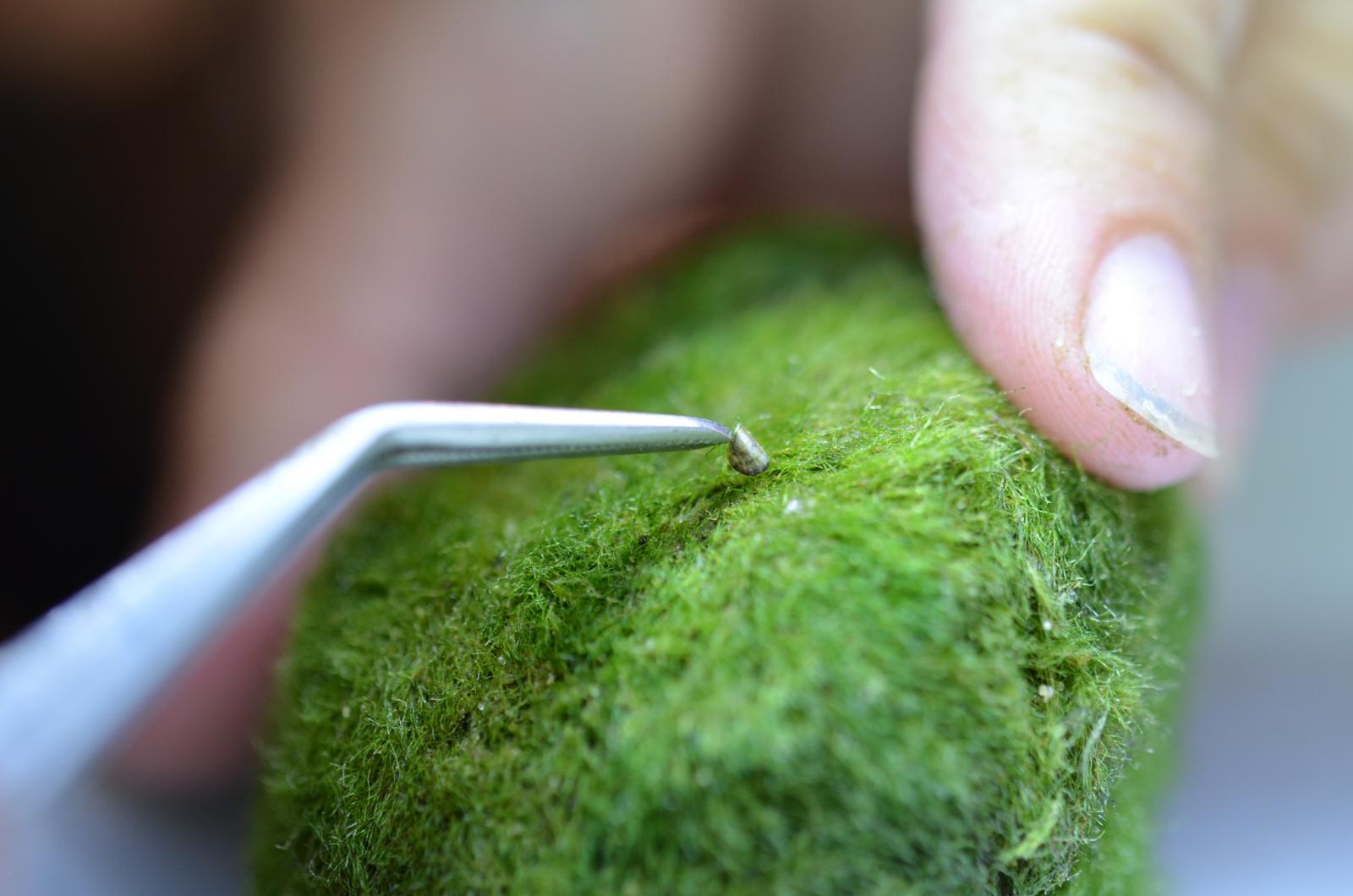Photos
Click to display full size or right-click to save to your device.
News release Aug. 8, 2024
Contact: Justin Bush, 564-669-9486
Media Contact: Becky Elder, 360-701-7026; media files available
OLYMPIA — On Monday, Aug. 5, the Washington Department of Fish and Wildlife (WDFW) received notification from a local wholesale aquarium company in Renton of possible invasive freshwater mussels on a shipment of Marimo moss balls (Aegagropila linnaei). Moss balls are a commonly used decorative algae in aquariums and water gardens.
Within minutes, WDFW dispatched an Aquatic Invasive Species (AIS) early detection monitoring team, who were in the vicinity monitoring for zebra and quagga mussels at American Lake in Lakewood. The team collected visible adult mussels, contaminated moss balls, and took water samples for DNA and microscopic analysis.
Lab testing confirmed the mussels were zebra mussels (Dreisena polymorpha), a prohibited aquatic invasive species in Washington that, if established in local waters, would be capable of causing significant infrastructure and environmental damage. Zebra mussels and a close relative, the quagga mussel, are not known to be established in Washington.
“I would like to commend our industry partner for being vigilant and quickly alerting us to this occurrence,” said Kelly Susewind, WDFW director. “We are rapidly working alongside industry, tribal, state, and federal partners to address this incident. Thank you to all the partners that are working together to keep Washington’s waters free from invasive species.”
The last incident where zebra mussel-infested moss balls were found in Washington occurred in 2021 which rapidly became an internationally scoped response and ultimately led to federal policy changes. The 2021 incident, first starting in Seattle, grew in scope to include 41 states and nine Canadian provinces.
“We are asking anyone who has purchased Marimo moss balls within the last year from any retailer to inspect the moss balls and take steps to decontaminate their aquarium or water garden for invasive zebra mussels,” said Justin Bush, aquatic invasive species policy coordinator. “Anything that moves can move invasive species; problem plant seeds can hitchhike on your boots, aquatic animals can attach to your boat or equipment, and harmful species can also move by hitchhiking through commerce, as we see in this case.”
Quagga and zebra mussels can clog pipes and mechanical systems of industrial plants, utilities, locks, and dams. If invasive mussels take hold in Washington, officials estimate it would cost more than $100 million each year to keep Washington’s power and water infrastructure running, in addition to the mussels causing catastrophic ecological damage.
Due to this risk and a quagga mussel detection in the Snake River in Idaho in 2023, WDFW received $3.62 million in additional funding from the Washington State Legislature and federal partners to increase monitoring, prevention, and response readiness for harmful quagga and zebra mussels in the Snake and Columbia rivers and across our state. This increased funding aided rapid response to the current moss ball incident.
“We all have a role to play in preventing and stopping invasive species, and the most basic action is to be aware and report anything that could be a problem and looks out of place. If you see something, say something, because you could find the first hitchhiker and prevent millions, if not billions, of impacts to the economy and environment,” said Bush.
“If you think your aquarium may be carrying invasive mussels, use the online reporting options including the Washington Invasives app or online reporting form,” said Bush. “It is as easy as taking a photo and submitting for an expert to review.”
WDFW is coordinating with Washington state agencies such as the Washington State Department of Agriculture and the Washington Invasive Species Council, regional, state, and provincial agencies; the U.S. Fish and Wildlife Service, the U.S. Department of Agriculture, and Native American tribes to inform the investigation and aid future prevention efforts.
For more information on aquatic invasive species in Washington, visit the WDFW website. For more information on the Washington Invasive Species Council, visit InvasiveSpecies.wa.gov.
The Washington Department of Fish and Wildlife works to preserve, protect, and perpetuate fish, wildlife, and ecosystems while providing sustainable fish and wildlife recreational and commercial opportunities.
